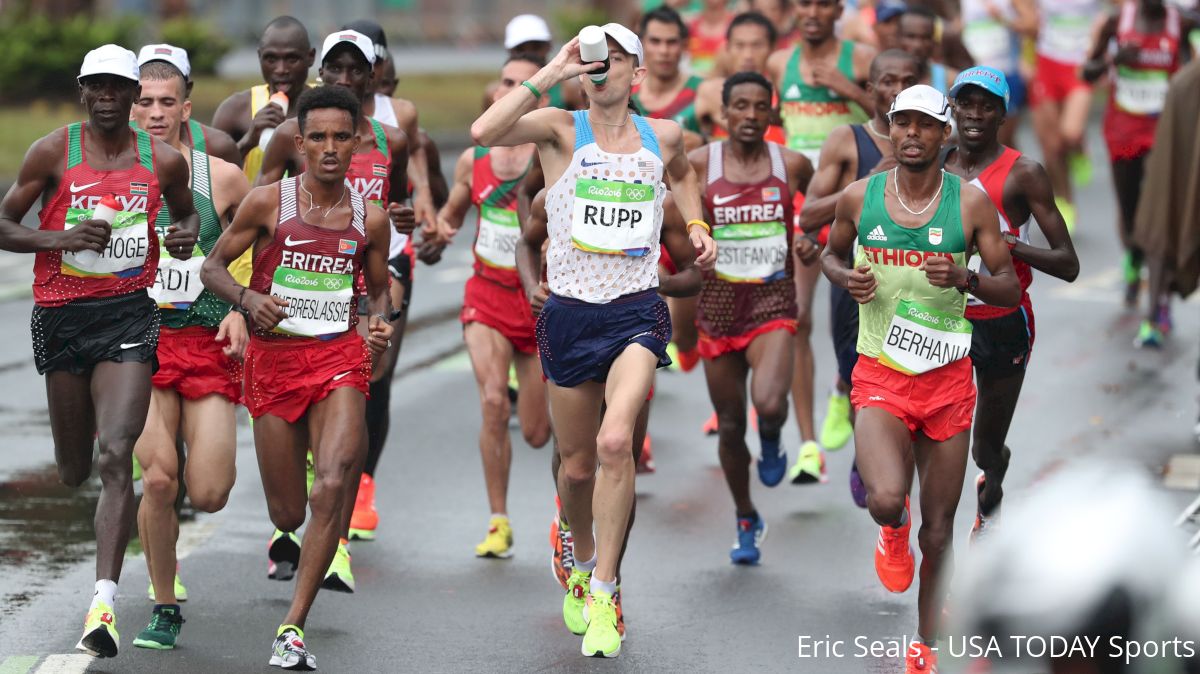2016 New York City MarathonNov 7, 2016 by Dennis Young
Reminder: Galen Rupp Ran Two Marathons In 2016 For Very Little Money
Reminder: Galen Rupp Ran Two Marathons In 2016 For Very Little Money
Galen Rupp did not make that much money marathoning in 2016.

Marathon appearance fees for professional athletes are bound by strict NDAs. But despite the A, some D has happened over the years. It's widely believed in the running world that Dathan Ritzenhein received hundreds of thousands of dollars to make his marathon debut in New York City in 2006, and speculation for Molly Huddle's appearance fee for competing yesterday starts at a floor of $100,000. So keep those numbers in mind when remembering that Galen Rupp ran two marathons with paltry prize money and zero appearance fees this year.
As Abdi Abdirahman advised Ghirmay Ghebreslassie yesterday, it can be tempting to scoop up the appearance and prize money at as many marathons as possible as quickly as possible. But your legs only have so many marathons in them, and the best way to maximize your earning potential is to extend your career. The tension between getting appearance money while it's still there and extending your career to get more appearance money over the years creates an unenviable economic tightrope for professional marathoners.
Galen Rupp jumped off the tightrope in 2016. He neither preserved his legs for the future nor gobbled up a ton of appearance and prize money. With $0 in appearance fees, he won $80,000 by winning the Olympic Trials, $10,000 from USATF by taking bronze in Rio, and depending how you read USATF's rules, maybe another $10,000 just for competing in Rio. And sure, Rupp probably took in a sizable six-figure bonus from his Nike contract for his medal. But those medal bonuses are widespread, and Rupp chose to bet on his own performance rather than take the guarantee of an appearance fee.
That's at most $100,000 guaranteed, plus a contractual bonus, for two marathons worth of pounding. If he ran New York and finished, say, third, his total haul from appearance and prize money would have been somewhere between $300,000 and $500,000. For a single marathon.
Rupp is maybe the single most scrutinized and criticized American distance runner. Some of those criticisms are fair; others aren't. But one thing that is incontrovertibly true about Rupp is that it's always been about one thing for him: competitive greatness. There's nothing wrong with prioritizing money in running--they're the exact same as any employee in any industry who wants to be paid for their work. But Rupp has always singularly prioritized competitive success over money and fame. There's no better example of that than the economic choices he made this year.
As Abdi Abdirahman advised Ghirmay Ghebreslassie yesterday, it can be tempting to scoop up the appearance and prize money at as many marathons as possible as quickly as possible. But your legs only have so many marathons in them, and the best way to maximize your earning potential is to extend your career. The tension between getting appearance money while it's still there and extending your career to get more appearance money over the years creates an unenviable economic tightrope for professional marathoners.
Galen Rupp jumped off the tightrope in 2016. He neither preserved his legs for the future nor gobbled up a ton of appearance and prize money. With $0 in appearance fees, he won $80,000 by winning the Olympic Trials, $10,000 from USATF by taking bronze in Rio, and depending how you read USATF's rules, maybe another $10,000 just for competing in Rio. And sure, Rupp probably took in a sizable six-figure bonus from his Nike contract for his medal. But those medal bonuses are widespread, and Rupp chose to bet on his own performance rather than take the guarantee of an appearance fee.
That's at most $100,000 guaranteed, plus a contractual bonus, for two marathons worth of pounding. If he ran New York and finished, say, third, his total haul from appearance and prize money would have been somewhere between $300,000 and $500,000. For a single marathon.
Rupp is maybe the single most scrutinized and criticized American distance runner. Some of those criticisms are fair; others aren't. But one thing that is incontrovertibly true about Rupp is that it's always been about one thing for him: competitive greatness. There's nothing wrong with prioritizing money in running--they're the exact same as any employee in any industry who wants to be paid for their work. But Rupp has always singularly prioritized competitive success over money and fame. There's no better example of that than the economic choices he made this year.